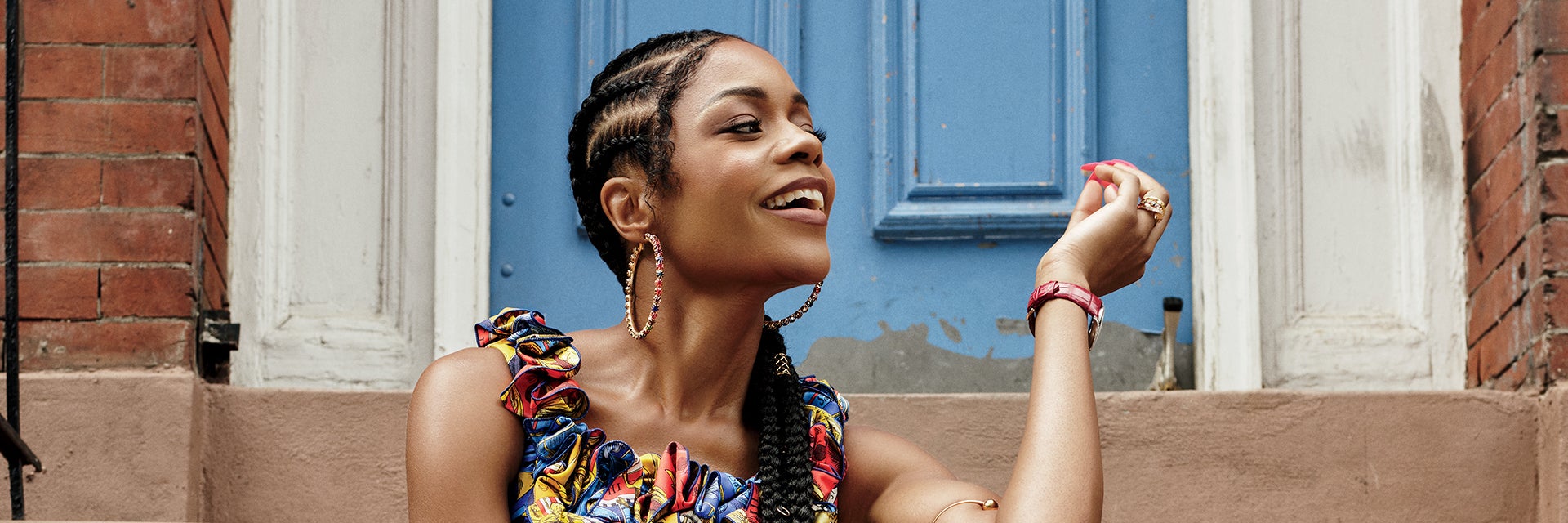Onscreen Naomie Harris has just about done it all.
After bursting onto the scene in the 1987 British kids’ show Simon and the Witch, the North London native went on to play a badass zombie slayer in 28 Days Later, a mystical goddess in Pirates of the Caribbean sequels, Winnie Mandela in Mandela: Long Walk to Freedom and Miss Moneypenny in the James Bond franchise. And in 2017 Harris was nominated for a Best Supporting Actress Academy Award for her portrayal of Paula, a mom struggling to kick her drug habit, in Barry Jenkins’s Oscar-winning film, Moonlight.
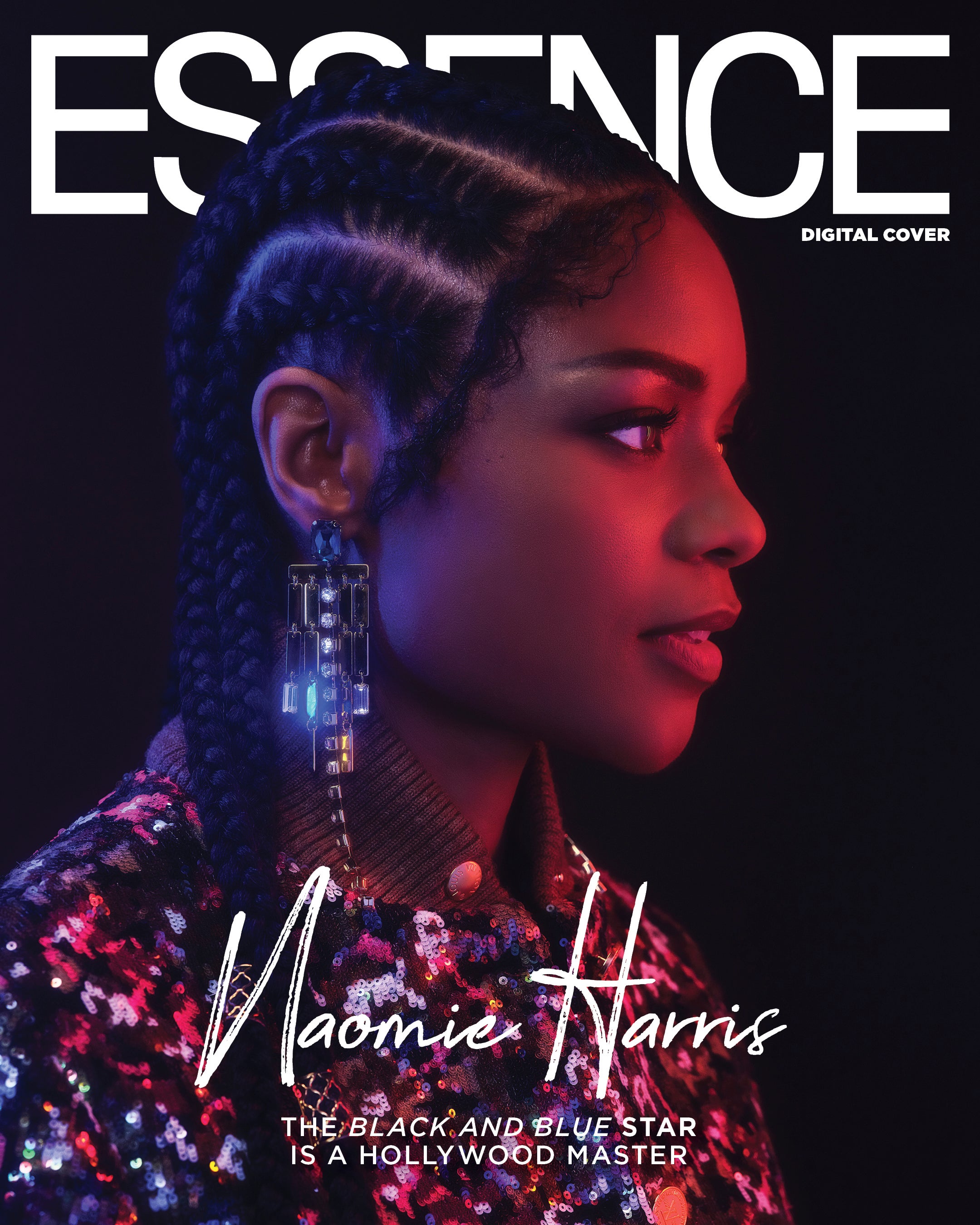
While Harris has depicted a cross-section of characters over the past three decades, one principle has guided her entire career: representing Black women. “I love to play strong, independent female roles, and I love to portray positive images of Black women,” Harris says.
Her latest film, director Deon Taylor’s gritty action flick, Black and Blue, allows her to do just that. In the movie, she plays Alicia West, a rookie cop who inadvertently records a fellow officer killing a drug dealer in cold blood. When West decides to do the right thing and break the blue wall of silence, the dirty cops in her department try to take her out. The result is a fast-paced, heart-pounding film with Harris in the middle of the action. “I was on the edge of my seat, thinking, Wow, this is such a roller-coaster ride,” she says of the first time she read the script. “I didn’t know what was going to happen. I was hooked.”
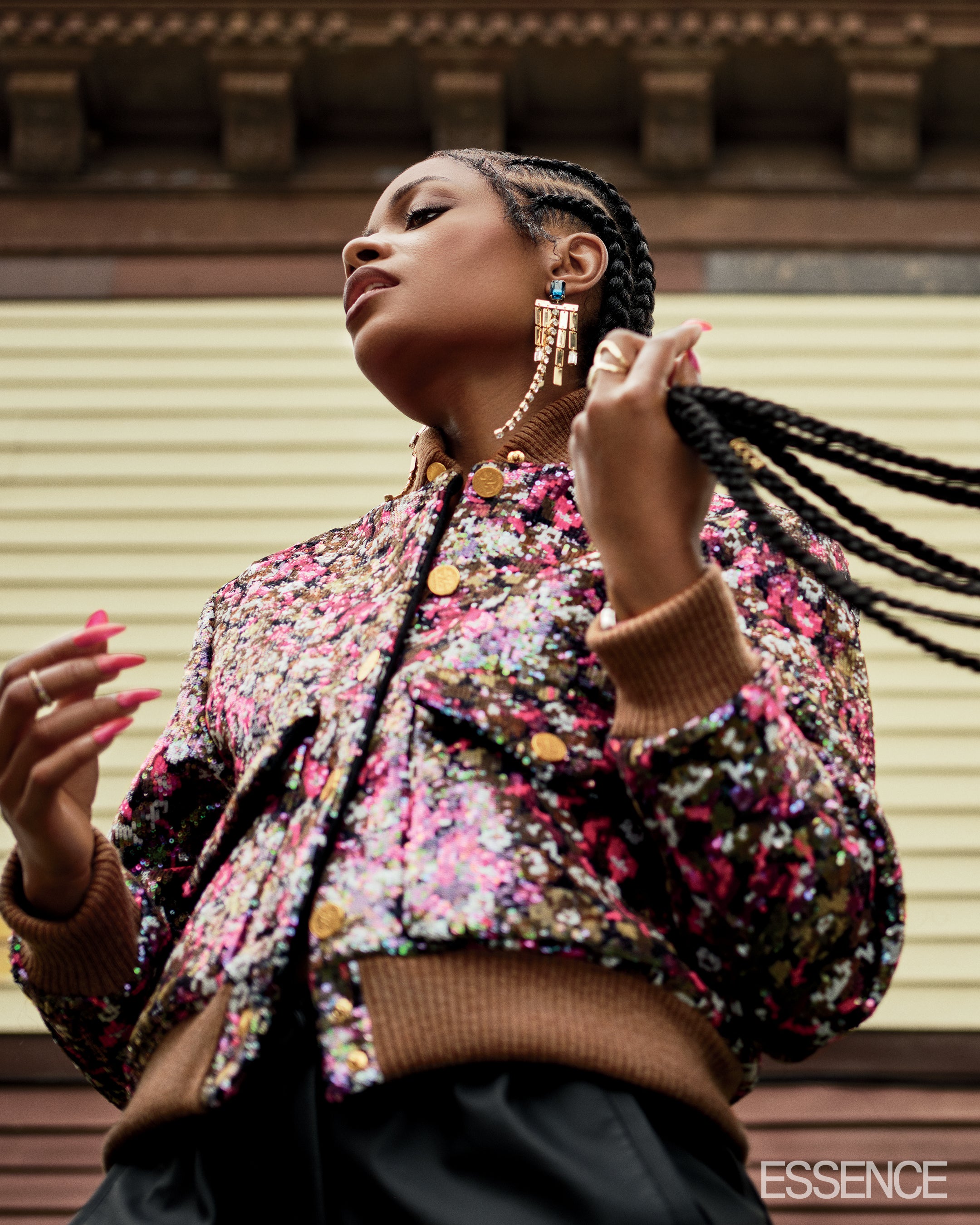
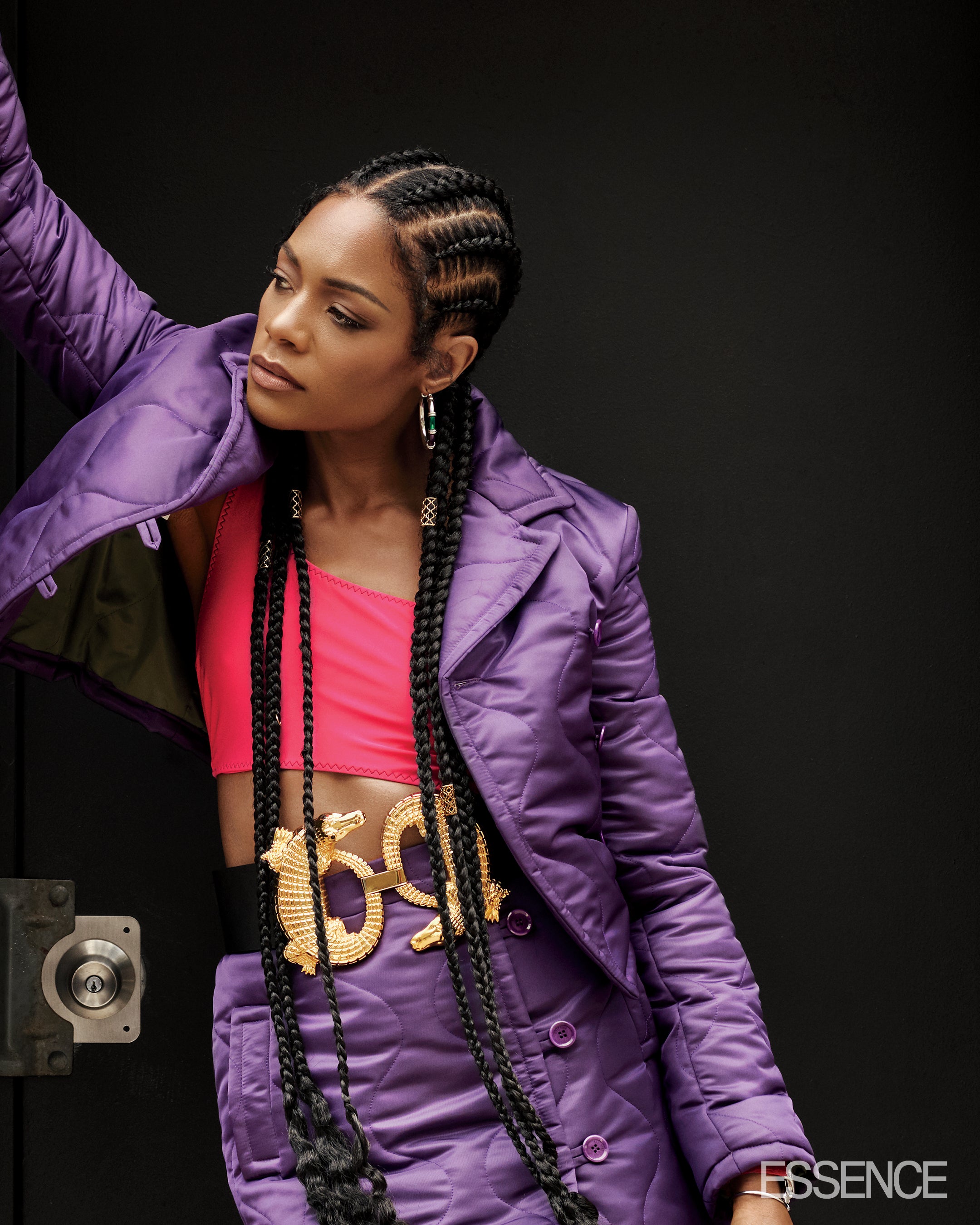
While the film will definitely keep you glued to the screen (Harris said her mom was so stressed out while watching it she didn’t even make it to the end), it’s also timely, given the spate of high-profile killings involving the police over the past few years. “The movie is brilliantly asking us questions, opening a forum in which we can discuss and dissect the issues that are really socially relevant to us,” Harris explains.
“I love to play strong, independent female roles, and I love to portray positive images of Black women.”
Unlike her Black and Blue costar Tyrese Gibson, who shared that when he was younger he was taught not to “f–k with the police,” Harris had a different perspective on law enforcement growing up in London. “I was unaware of police brutality and police corruption,” the 43-year-old admits. But after seeing clips of police killings and abuse splashed across the news, her awareness shifted. “As more and more of these videos came to light, it affected my assessment of the police,” she says. Though she believes there are differences between policing tactics in the U.S. and the U.K., Harris notes that regardless of where she’s based, “it’s hugely distressing and disturbing to see those images.”
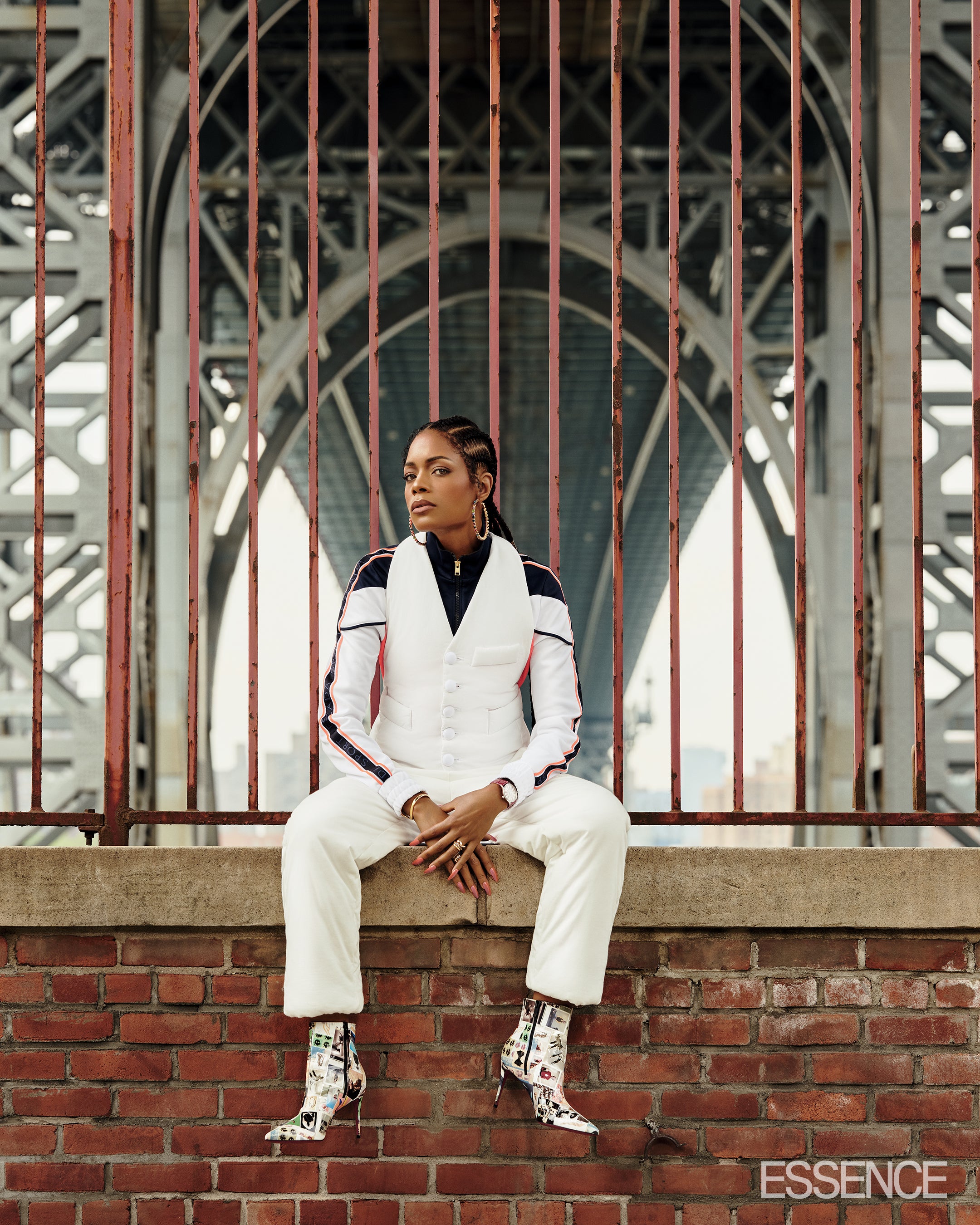
She hopes her current project, which was filmed in New Orleans and partially shot using body cameras, will not only entertain moviegoers but make them think as well. “I want audiences to be provoked in some way, and I also want them to have had a really immersive experience of what police brutality feels like and what it must be like to be on the receiving end of that,” she says. “I want people to experience the fact that, yes, there are corrupt cops and then there are good cops like Alicia who exist as well.”
While Harris is thrilled to command the stage and screen, her family is still the most important part of her life. “When I go abroad, they travel with me to every film set,” she says. “No matter what, they’re always there.”
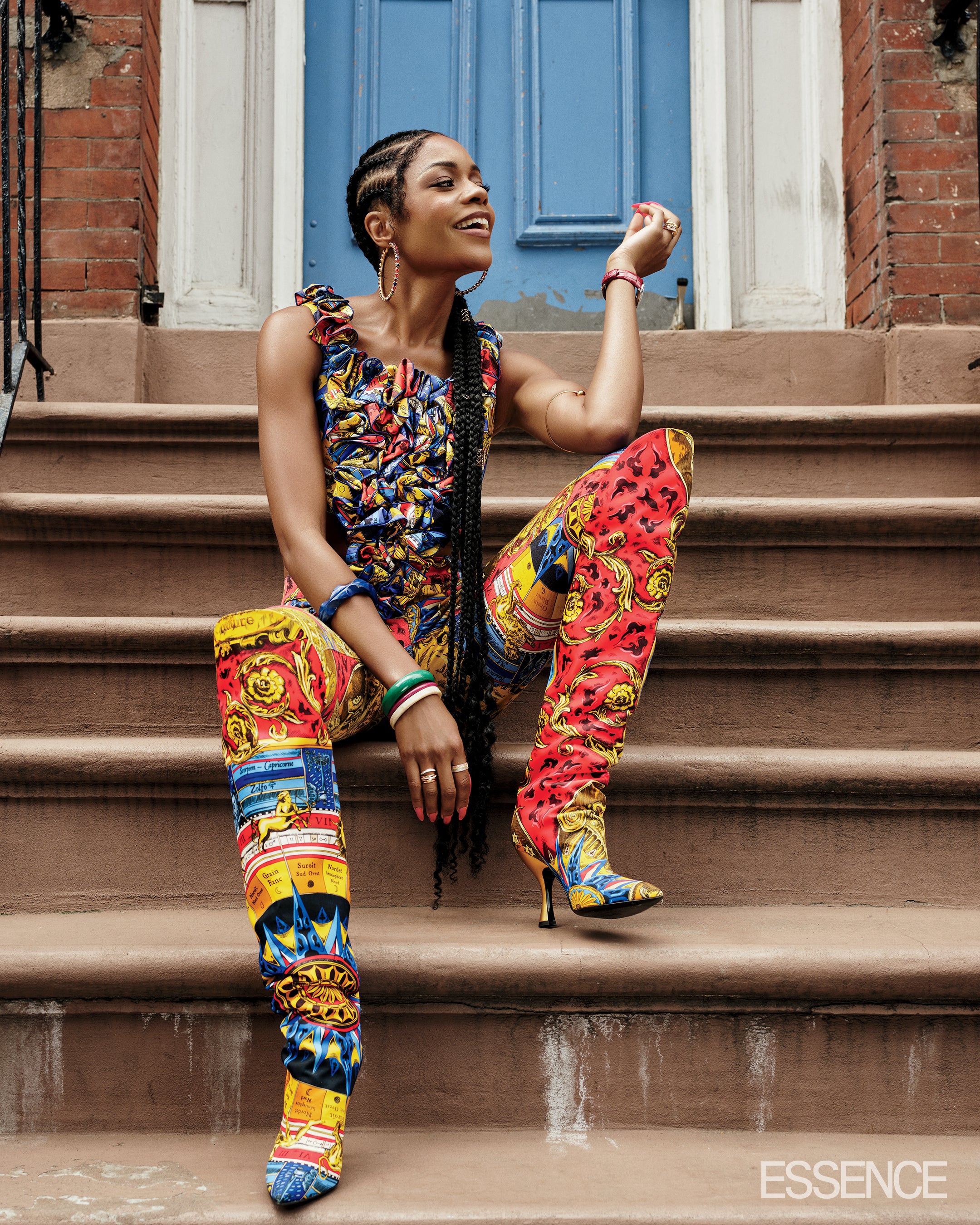
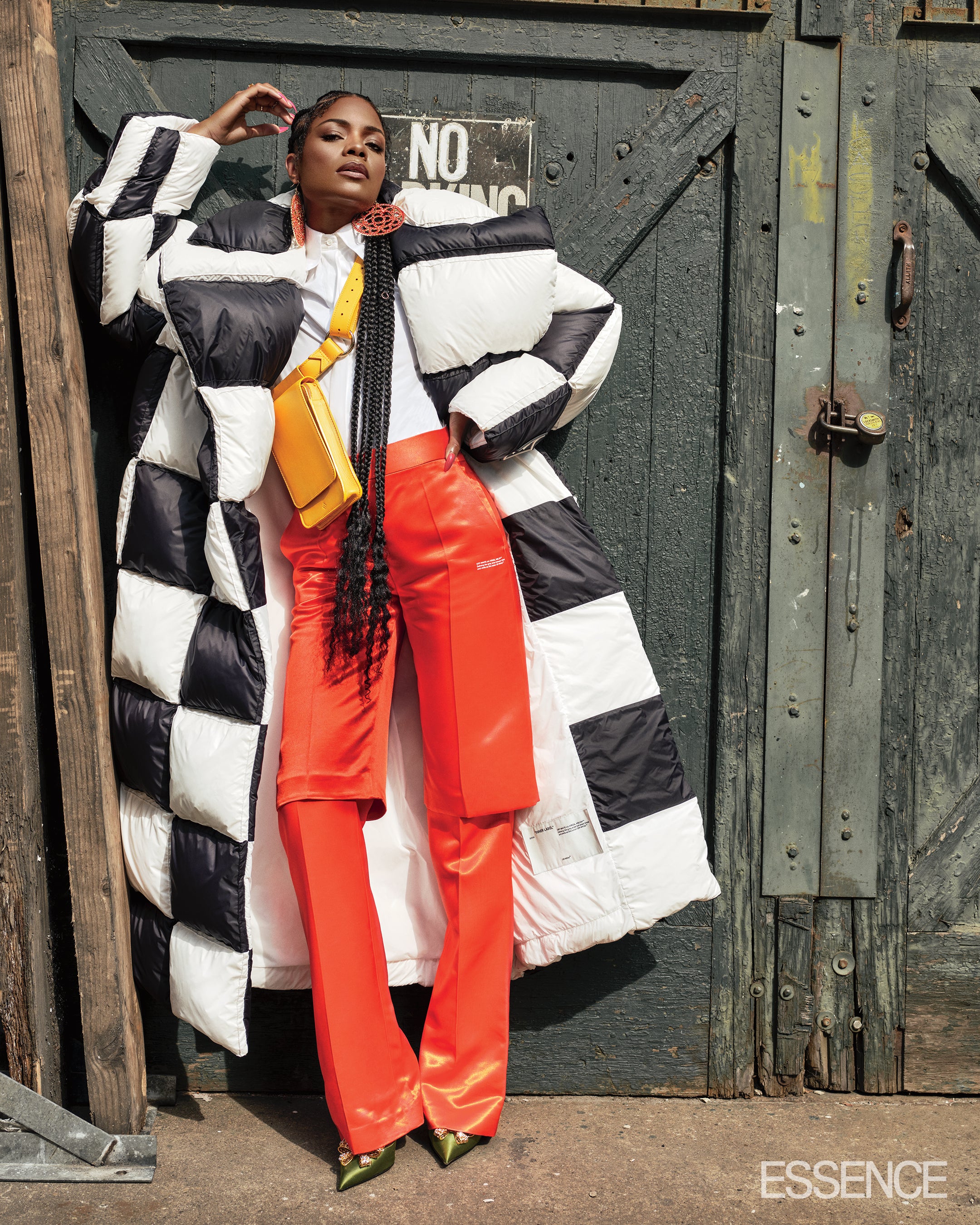
Back in July, she appeared on the BBC’s Who Do You Think You Are?—a show that combs the family histories of celebrities and other public figures. Harris, who is of Jamaican and Trinidadian descent, learned some startling news about her heritage when the show traced part of her lineage to one of the first enslaved women in Jamaica. “I was in tears,” she says, “because we often think about slavery, but don’t necessarily connect the dots between slavery and our lives today. And just seeing it very clearly busted out in my own family history was incredibly powerful.”
The project also provided some enlightening insights about her forebears. “My ancestors generally lived in great poverty and had quite sad lives,” she says. “And one of the things I took away from that was the realization that I am now in this privileged position where I get to choose what I want to do with my life, and I get to have my freedom, and I get to be economically free. I can choose.” Noting that she is literally the embodiment of her ancestors’ wildest dreams, she adds: “It’s really important to honor their legacy by living as happy and as joyous a life as I can, because they weren’t able to.”
Britni Danielle (@britnidwrites) is a writer based in Los Angeles.
Credits:
Stylist – Ade Samuel (@adesamuel)
Hair – Kim Kimble for SixK.LA. (@kimblehaircare)
Makeup – Mario Dedivanovic (@mariodedivanovic)
Manicure – Momo using Tom Ford Beauty/See Management (@ohmynailsnyc)
This interview originally appeared in the latest issue of ESSENCE magazine, available on newsstands now.
